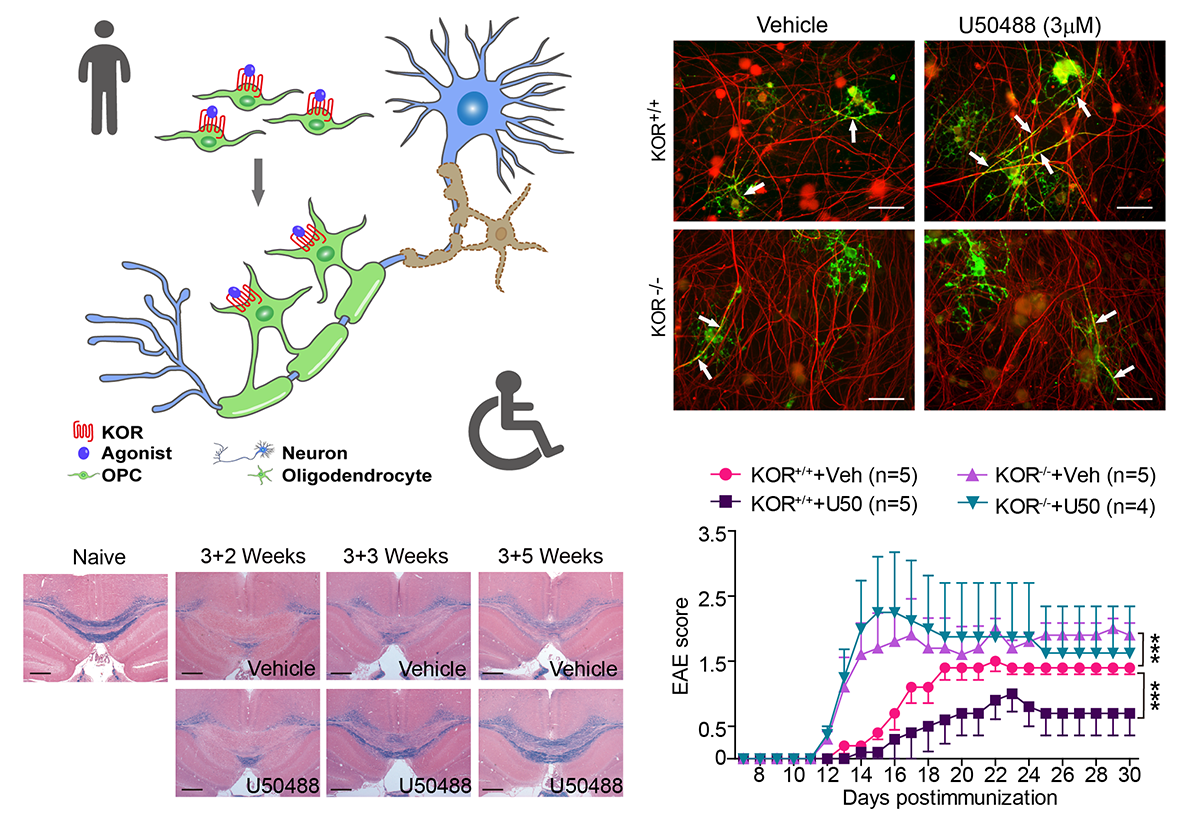Multiple sclerosis (MS) is a T cell-mediated autoimmune disease that causes demyelination in the central nervous system and disability in young adults. Current treatments for MS all target the immune system. Although effective in reducing new lesions, they have limited effects in preventing the progression of disability. Promoting oligodendrocyte-mediated remyelination and recovery of neurons are the new directions of MS therapy. Recently, we identified that the Kappa Opioid Receptor (KOR) is critically involved in the differentiation of oligodendrocyte progenitor cells towards myelinating oligodendrocytes. Activating KOR promotes the generation of oligodendrocytes and remyelination, while KOR knockout prevents agonist mediated beneficial effects. In both the immune- and chemical-mediated demyelination animal models, KOR agonist promotes remyelination and recovery. Our study suggests that KOR might be a target to develop new MS therapies from a regenerative point of view. This study has been published in Nature Communications (04 Apr 2016, 11120 doi:10.1038/ncomms11120).
This study is conceived and supervised by Prof. Xin Xie. Dr. Changsheng Du and Ph.D. candidate Yanhui Duan contributed equally to this work. Prof. Xie’s group has been studying the functions of GPCRs in MS, and has discovered that two GPCRs (CysLT1 and A2B) are critically involved in the development of MS and may be explored as new therapeutic targets for the treatment of MS (J Immunol, 2011,187(5):2336-45; J Immunol, 2013,190(1):138-46). A number of old drugs have also been identified by the group to alleviate the symptoms of a MS animal model, indicating possible drug repositioning opportunity (J Biol Chem, 2012,287(34):28656-65; J Immunol, 2013,190(3):1017-25).
The current study was supported by grants from Chinese Academy of Sciences, the Ministry of Science and Technology of China, the National Natural Science Foundation of China, and Shanghai Municipal Government.
Link to the article : http://www.nature.com/ncomms/2016/160404/ncomms11120/full/ncomms11120.html
